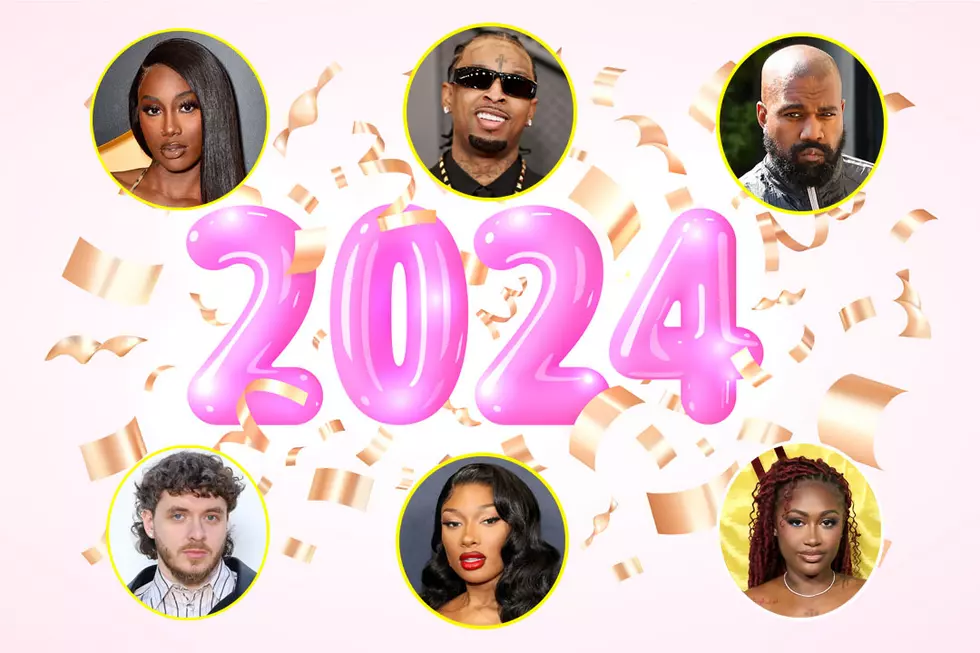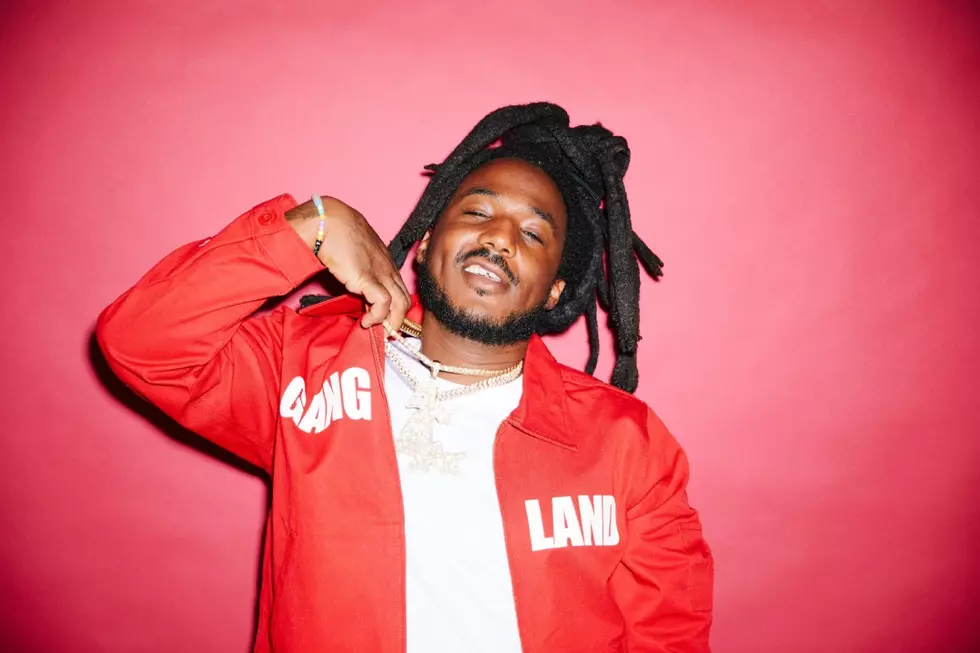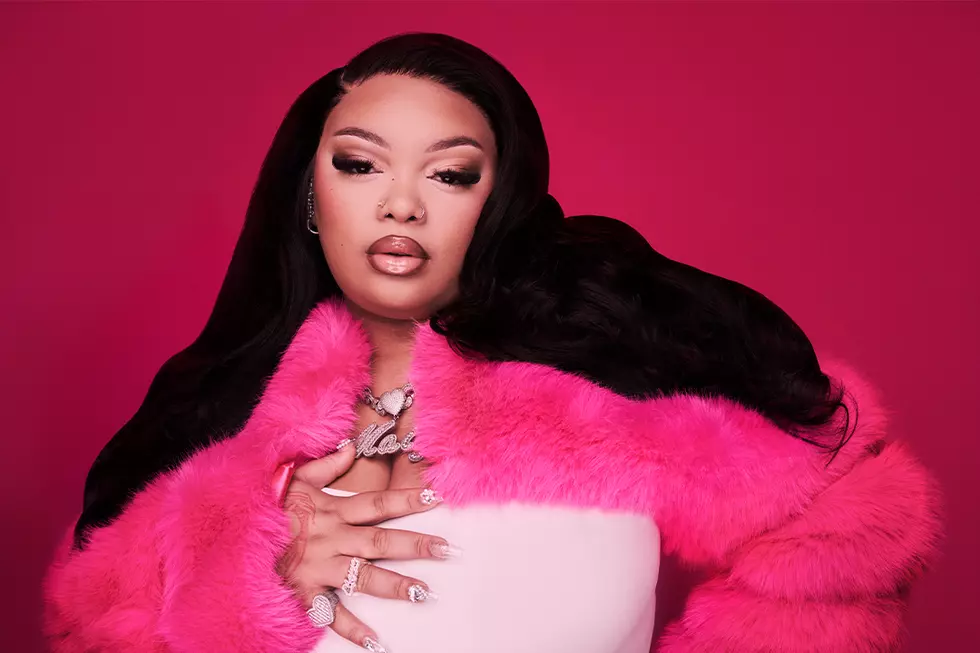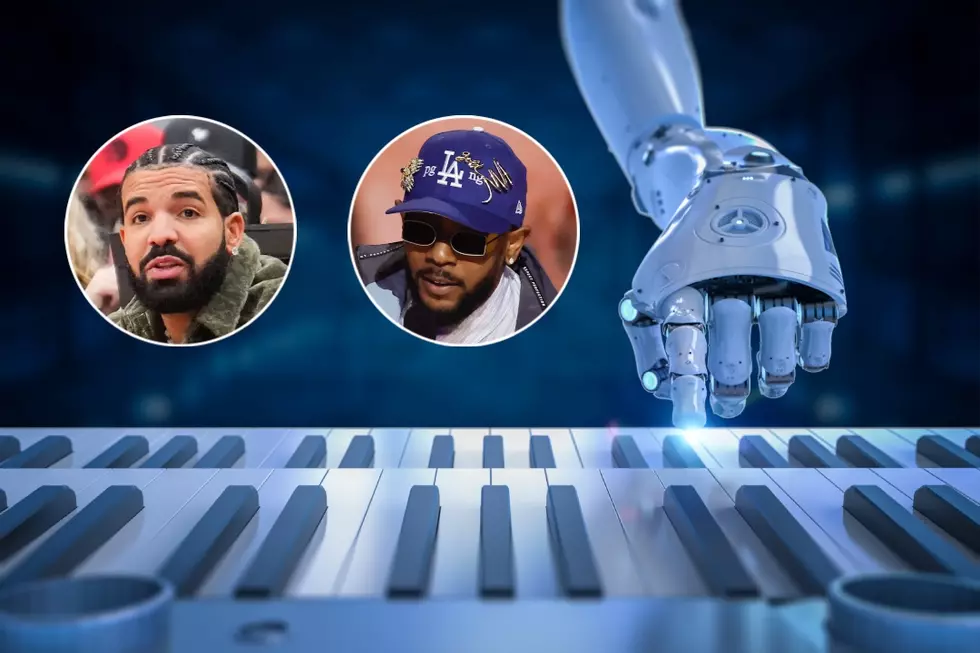
How ‘Adult Swim’ Became A Hip-Hop Staple
Since its birth in 2001 on Cartoon Network, Adult Swim has grown from just airing Space Ghost Coast To Coast to being basic cable’s No. 1 network with adults 18-49. The network is one of the reasons many people stay up late and come in tired for work. Who brought Family Guy and Futurama back to life? Adult Swim. Who introduced the world to a talking milkshake, hamburger meat, fries and Carl Brutananadilewski? Adult Swim. With its unique programing and presentation, Adult Swim's popularity has catapulted with fans, not just because of their shows but also their taste in music, most notably hip-hop.
From their signature-style text-bump formats that play smooth instrumentals from J. Dilla and Madlib in the background to their programming like Boondocks and Odd Future's Loiter Squad and their Adult Swim Upfront concerts and hip-hop mixtapes, it's clear that behind the scenes, Adult Swim houses some pretty big hip-hop fans. That becomes evident when you check out Williams Street Records, a boutique independent label which was founded by Jason DeMarco, vice president and creative director, on-air for Adult Swim. So XXL hopped on the phone with DeMarco to discusses the birth of Adult Swim, how music is selected for the network, Williams Street Records and the Adult Swims Singles Program. —Emmanuel C.M. (@ECM_LP)
On The Making Of Adult Swim
Jason DeMarco: Adult Swim started because Michael Lazzo, who at the time was the head of programming for Cartoon Network, went to Jim Samples, who was the president of Cartoon Network at the time, [and asked] if he would allow him to do a limited programming block where he can try experimental things. Sort of in the vein of Space Ghost Coast to Coast, which is a show that Lazzo created and worked on with a team over a couple years, and that show kind of just aired in the middle of the night at Cartoon Network. He wanted to sort of build a block of shows like that.
One thing he also asked for is to control the commercials and the look and the feel of the block. So that started with mostly acquired programming. Some key milestones were getting some original shows like Harvey Birdman, Sealab 2021 and then eventually Aqua Teen Hunger Force—which was actually a spinoff of Space Ghost and made by some of the same people. Then when we got Family Guy. That was sort of our first big moment. About two years into Adult Swim’s life we started to do on-air bumps where we talked directly to viewers. Just over the last 12 years or so, it expanded from just that little block to every single night of the week from 9 p.m. to 6 a.m., and it’s basically the other half of Cartoon Network.
On Choosing Music Syncs
DeMarco: A lot of us are hip-hop fans, especially Lazzo and myself. The way music is picked is a combination—there’s a group of guys who do the bumps and they are a unit unto themselves. I get them music, and if they like it, they use it. We have deals with a couple of different labels, too, that I set up that allows them to use a lot of different music from Warp Records, or Ninja Tune. So you hear a lot of those artists and labels simply because we have deals that allow us to use a lot of their music. It’s really on them, the bump guys, on the day to day basis as far as that goes.
Then there is the whole other side to it, which is the on-air promo and the shows. That all comes from the Williams Street Label and me. And each show creator has their own visions for whatever their music is—sometimes we help with them and sometimes we don’t. Using Boondocks as an example, they have their own musical identity, they have a very clear musical direction and they know exactly what they want and they don’t really need any help from us. And for other shows, someone might come to me saying, "I’m looking for this kind of artist," or, "Hey, can you put me together with whomever?" and I just put people together. It’s kind of different for everybody. I’m a big music nerd; Lazzo is too. The bump guys are definitely a huge part of it. We don’t all listen to the same music, but we all share what music we're passionate about around the office, and we all talking about the records or what records everyone is feeling.
Right now, I listen to everything—right now this week, I’m most hyped about Danny Brown’s record. I’m enjoying the Pusha T record, and then my friend is in the band Cults, they have a record coming out next week. Hip-hop has always been a part of my music listening. This year has been a great year for hip-hop to me. The mixtape circuit has just exploded; there has been a new mixtape every week. There’s 10 a week, to even get through them all is very hard. And I live in Atlanta so I have to rep my Gucci and my Waka tapes. I always make time for Gucci and Waka tapes, and Gucci this year alone has been so prolific I barely have time to listen to everything he's put out.
On Creating The Williams Street Records Label
DeMarco: Adult Swim and the bumps and some of our shows are made at Williams Street, which is literally a location across the street from the Turner Campus that the Adult Swim camp sits in. It was this lost building that we moved into and sort of turned it into the Adult Swim pirate ship. And then the label, Williams Street Records, came about because I have been friends with Brian Burton [Danger Mouse] 'cause he came up in Athens and he was knocking around Atlanta for a while. And he had a project called Pelican City. He had a couple CDs, and I remember I bought one at a local music store.
At the time, I ran this block called Toonami on Cartoon Network, and Toonami always used hip-hop as well, which is sort of how I started this whole journey. I was always looking for beats for Toonami. So I heard Pelican City and I thought, this is some perfect music for us. I called the number at the back. He started giving us some music; he and I became friends. So Brian came to me and said, “Hey, have you heard of this rapper DOOM?” and I said, “Of course.” He said, “Well, he and I want to do a Toonami record,” and I said, “I don’t think anyone wants to do a Toonami record, but I think an Adult Swim record would be a cool idea.” And he said, “Oh word, DOOM's a huge Adult Swim fan, he’s like a total cartoon nerd, I think he would love that.” And we pitched the idea to Lazzo, who didn’t really see any...thinking back on it there was no real reason he should have said yes, but he said yes and gave us the money to make the album.
We made the album and put it out, and it was a hit album. It sold like 200,000 copies, way bigger than what we ever thought it would be. And then off the back of that we did Chrome Children, because I was friends with Stones Throw, and we did that collaborative project and that did well. And after those two albums, internally at Adult Swim, some people started saying, these are awesome, why don’t we start a label? We have the infrastructure; why don’t we put them out ourselves? So that’s what we did. We got the distribution deal and basically they set up a very small boutique label.
When we want to, we put out a whole bunch of records. A lot of show soundtracks. We put out the Diary Of An American Witch Doctor and some rock & roll records, some hip-hop last year. That’s how the label started—because of Danger Doom and how well Danger Doom did. It was just sort of like, how do we keep this going? 'Cause we thought it was fun and a cool different thing. And that’s what spun into all the free albums and Adult Swim Singles. And someone said, hey, maybe you can try selling them to sponsors, and I was said, let's do that. And our first one of those was Chocolate Swim, which was with Chocolate Industries, and our next one was Definitive Swim with Definitive Jux. After those, we did like 30 of them, and that’s kind of how Adult Swim Singles began—we just wanted try doing one song a week for like a summer. And it did so well, that it’s just something we want to keep doing, both for fun, but also our fans made it clear that they liked it and wanted it from us.
On The Adult Swim Singles Program
DeMarco: It’s always a really scary ride because you never know how things are going to come together. We're always going to these artists and asking for a brand new song. When you're going to Miguel and saying it’s not good enough for you to give me a remix, I need a new song, and Miguel is in Australia touring and you're asking him to write a new song, you never know what’s going to happen. So every time it’s done, during the time were doing it, it takes five years off my life and I swear I’m never doing it again. And as soon as it's done, I start thinking about next year.
It [started in] 2009, 'cause this is our fourth year and we did 15, the most tracks we have ever done. We’re in a very lucky position this year because I think a lot of artists now know that we do this, and I always assume that people haven’t heard about it, so you have to ask more people than you actually think are going to do it, because you have to cover your bases. Normally when you're doing a music project, if you want 10 songs, you ask 30 artists because 9 out of 10 are going to be on tour, they don’t have any new songs, they're not interested, etc. You have to cover your bases. And this year was sort of an embarrassment of riches because every single artist I asked said yes.
Certain people like Killer Mike and Flying Lotus are good friends and I consider them good luck charms and I just always try to get them up here. It’s just who I like, honestly. I say this without any ounce of ego—if I like this band, and like their music then I will consider putting them on there if I can afford them and if they can give me a me a new track. Now artists come to me who I’m not super into, and I just don’t put them on there. I am lucky enough now that since it’s been around, people have come up to me and said they wanted to be a part of it, which is the best-case scenario for me, because it’s doing my work for me. I have a blast doing it. I met some amazing people. El-P and [Killer] Mike came to my wedding last weekend; life-long friends in some cases.
More From XXL









